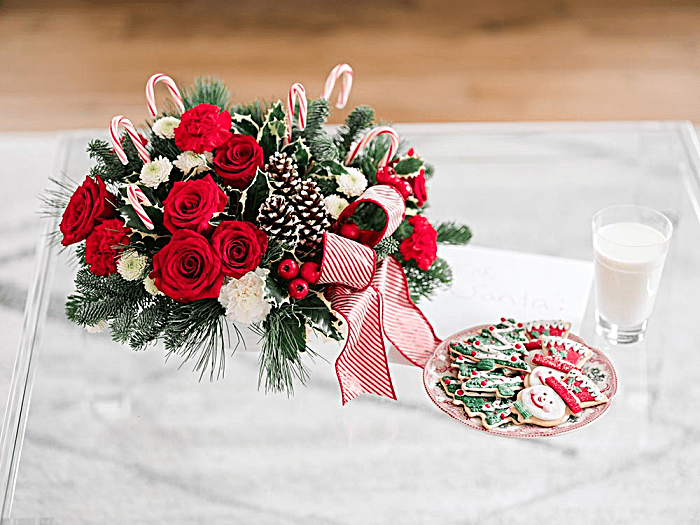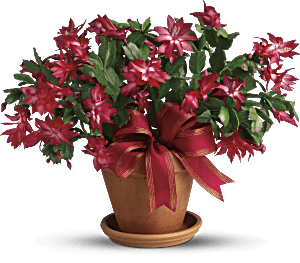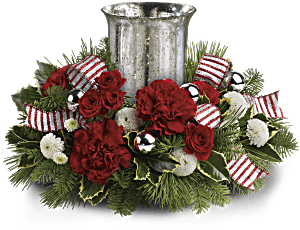Christmas Flowers and Their Meanings


The holiday season is firmly upon us and we’re ready to start celebrating. Christmas is a great opportunity to show off your seasonal spirit by putting your decorating skills to the test, and what better way to do that than with flowers? Christmas flowers are truly sensational — a fact that even the grumpiest grinch can’t deny.
There’s a plethora of blooms that are typically associated with the festive period. But did you know each one has its own unique meaning? That’s right! Every blossom and plant we adorn our homes with has a traditional symbolism that makes them so much more significant than just a pretty ornament.
Let’s explore some of the most well-known Christmas flowers and their meanings:
Poinsettias
The iconic scarlet blooms originate in Mexico but have graced Western homes for almost 200 years. A legend from their home country explains that a poor young girl wasn’t able to buy a gift to bring to church on Christmas eve, so instead she picked and brought along some weeds. As she placed unwanted greenery at the nativity scene, it bloomed into the vibrant crimson leaves of the poinsettia. Today, poinsettias thrive in bright sunshine and don’t require a lot of watering. Therefore, Teleflora’s poinsettias make the perfect Christmas gift for a family member.
Christmas Cactus
When you think of the colder Christmas season, you’re not likely to think of a cactus. After all, they thrive in the sweltering heat. But the Christmas cactus (or Schlumbergera) has been a staple in many American homes at Christmas time for decades. One meaning behind the Christmas cactus comes from the plant’s native land, Brazil, where a young boy prayed to God for a representation of Christmas to relieve him and his neighbors from the heat and humidity of the jungle. The next day, they were surrounded by beautiful cactus blossoms. Much like its meaning, Teleflora’s Merry Christmas Cactus Bouquet will leave an unforgettable holiday imprint on the hearts of your loved ones when it arrives on their doorstep this Christmas.
Amaryllis
You might not imagine lilies when someone says “Christmas flower” but the amaryllis (also known as the March lily in its native South Africa) has found a home in America over the holiday season for a while now. Unlike the other Christmas flowers, the amaryllis’ meaning doesn’t trace back to anything particularly Christmas-y, rather it’s symbolic of the blood of nymph in Greek mythology, as well as confidence and pride. While it doesn’t have any tales associated with Christmas, it’s famous for its ruby red and snow white varieties, making it the perfect plant for the Christmas color palette.
Holly
Lastly, we have one of the most emblematic Christmas plants of all! There’s a reason we deck halls with boughs of holly. This association of this evergreen tree (also referred to as shrub or climber, depending on the specific species) with wintertime began with the pagan Celtic Druids in pre-Christian Europe who used the plant as a symbol of new and everlasting life during the extremely cold and harsh northern winters. Holly was considered a greenery that could ward away bad spirits and celebrate new life and opportunity. Today you can decorate with Teleflora’s Holly Jolly Centerpiece, complete with sprigs of holly, to bring good tidings of comfort and joy into the homes of your loved ones.
Now that you know the meaning of Christmas flowers commonly seen around homes and businesses during the season, which will you be choosing for your home?






